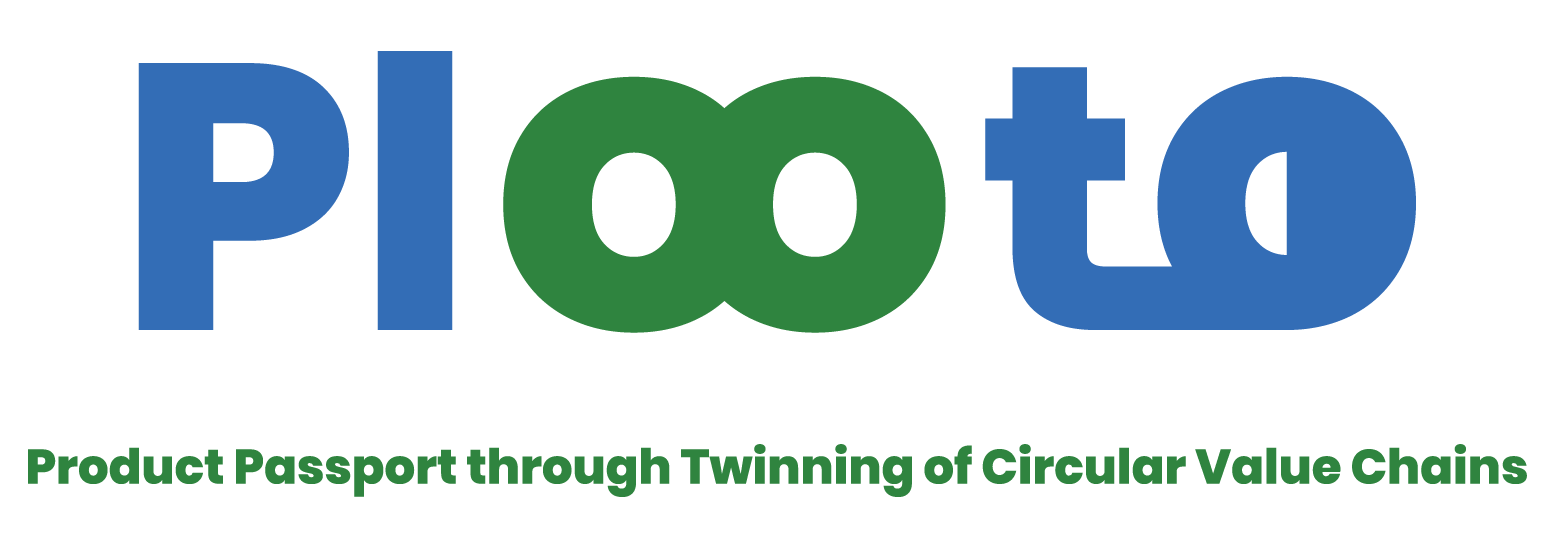The Plooto Objectives
Plooto analyses three industries and their supply chains to collect their circularity needs and constraints and to model the Value chain network (stakeholders’ roles and input/outputs). By identifying the materials and products to be used as SRMs, Plooto will derive the replicable strategies, the key objectives, and initiatives to reduce waste across the entire chain, through reference processes for waste deposit, treatment and re-use back in the production.
The CDT platform has advanced reasoning and autonomous decision-making features for adopting circular and sustainable practices (recycle-reuse-repair), while improving the overall operational performance. Apart from the provision of cognition services, CDTs allow the prediction of trends and the flexibility of cross-industry SRM flows and employ robust optimization and planning services for the cooperative use and sharing of SRMs among multiple suppliers; as a result, CDTs optimize the waste treatment flow, the use of SRMs and the product life- duration. The information gathered in all production phases will be made available through product passport/identity services, providing info on the product’s composition (which materials, % of new and recycled/reworked materials), the provenance ensuring the traceability of materials from trusted suppliers, the circularity effect of the product based on the Material Circularity Indicator (MCI)13 of its components. Moreover, Plooto will develop balanced scorecard services that will act as performance monitoring and life cycle assessment tool by addressing defects and waste KPIs, reusing policies, scrap status, usage patterns, etc.
CRIS will create the CDTs encompassing the services of OBJ2. CRIS allows semantically enriched DT modelling (based on ISO 23247 standard). The underlying DT infrastructure allows modelling and real-time information exchange among different CDTs in the supply chain. Governance services relying on security, privacy and sovereignty provide private and trusted channels for communication exchanges. Within CRIS, Interconnected dataspaces will feed dynamic services for proactive optimization of use of secondary raw materials. Distributed Ledger Technologies (DLT) infrastructure that will permit Plooto to be extended to scenarios lacking centralized entities or intermediaries.
Plooto’s CRIS, although of generic design, will be customised to be instantiated in the three pilot cases. Measurements will be collected to assess the performance of the technical solution and to evaluate how the digitalization of the processes foster a more sustainable and circular value chain. The lessons learnt during the piloting phase will be translated into: a) a waste treatment reference framework with replication guidelines, b) generic human activities framework with deployment guidelines and lessons learnt from the pilots, and c) reference operational and governance framework for digital waste value networks.
The dissemination will focus more on the scientific and technical achievement with the overarching objective to raise awareness about Plooto and set the foundations for future exploitation and commercialization of the project results. The experience gained will be used to co-design – together with local and regional educational organizations – lifelong learning programmes, and vocational education and training modules to provide pathways to continuous upskilling and reskilling programmes with the aim to develop a skilled and innovative workforce based on circular economy’s principles, thus facilitating closing the gap between the present skills of the workforce and the future skills needed. Success stories and educational activities will help engaging relevant stakeholders to create a solid community of potential future adopters.
